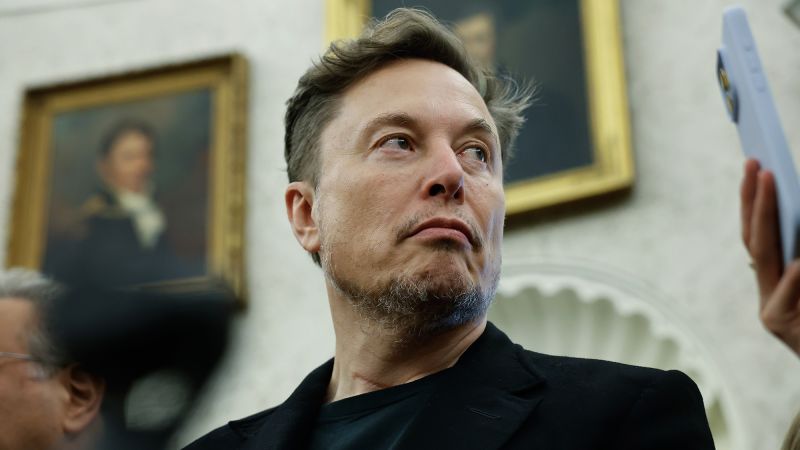Elon Musk’s ongoing political engagements are casting a shadow over Tesla, as the company is set to report another quarter of declining global sales. This downturn, expected to be announced on Wednesday, follows a series of challenges including increased competition in the electric vehicle (EV) market and reputational damage linked to Musk’s political activities.
Investors have been eagerly awaiting a revival of the “Musk magic” to steer Tesla back on track, but instead, the CEO appears entangled in political disputes. Recently, Musk reignited a feud with former President Donald Trump, criticizing his tax and spending bill as “insane” and threatening political retaliation against supportive Republicans. Trump’s response hinted at potential investigations into Musk’s companies’ government contracts, escalating the tension.
The Impact on Tesla’s Performance
Analysts forecast a 13% decline in Tesla’s sales for the April-June period compared to the previous year. Data from FactSet suggests Tesla will report 387,000 deliveries this quarter, down from 444,000 a year earlier. This decline could surpass the first quarter’s record drop, marking a troubling trend for the EV giant.
Wedbush analyst Dan Ives, a long-time supporter of Tesla, expressed concern over Musk’s political entanglements, stating,
“Tesla investors want Musk to focus on driving Tesla and stop this political angle… being on Trump’s bad side will not turn out well, and Musk knows this.”
Despite the challenges, Ives remains optimistic about Tesla’s potential, though he acknowledges the damage to the company’s image is affecting sales.
Financial Struggles and Market Challenges
Tesla’s problems extend beyond sales. The company reported a 71% drop in net income in the first quarter, and its showrooms have faced protests. The much-anticipated Cybertruck has not met expectations, and a recent Electric Vehicle Intelligence Report indicates a bipartisan hesitance to purchase Tesla vehicles due to Musk’s political affiliations.
Moreover, Tesla’s profitability has been buoyed by the sale of regulatory credits, which accounted for $595 million last quarter. However, if Trump’s spending bill passes, these credits could disappear, further straining Tesla’s finances.
“Tesla is losing money on what should be its core business: selling cars,”
noted a report by Chris Isidore, highlighting the precarious financial situation.
The Broader Implications
The political drama between Musk and Trump has not only affected Tesla’s stock, which has fallen 37% from its post-election peak, but also raised concerns about regulatory challenges. Initially, Musk’s presence in the White House was seen as beneficial for Tesla, potentially influencing favorable regulations. However, the fallout has investors worried about Trump’s potential retribution against the company.
As the feud reignited, Tesla shares dropped 2% on Monday and another 5% on Tuesday, missing out on a broader market rally. The situation underscores the delicate balance Musk must maintain between his political ambitions and his responsibilities as Tesla’s CEO.
Looking Ahead
There are signs Musk may be reconsidering his approach. Following Trump’s remarks about the DOGE committee, Musk hinted at restraint, writing on X,
“So tempting to escalate this. So, so tempting. But I will refrain for now.”
Whether this marks a shift in Musk’s strategy remains to be seen, but for Tesla’s investors, a focus on the company’s core business is crucial.
As Tesla prepares to release its quarterly report, the stakes are high. The company’s future hinges not only on its ability to innovate and compete in the EV market but also on Musk’s capacity to navigate his dual roles as a business leader and a political figure. The coming months will be critical in determining whether Tesla can overcome its current challenges and regain its footing.
